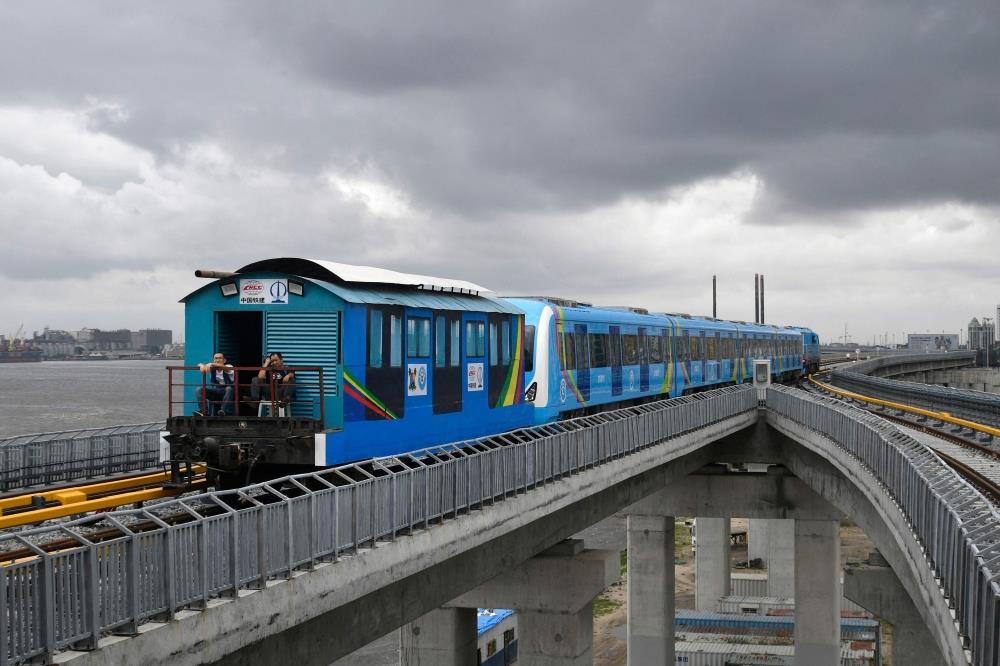(MENAFN- The Peninsula) AFP
Lagos: After years of delays, Lagos residents got to ride on the Nigerian megacity's new railway on Monday in what the local government hopes is a start to easing its infamgridlocks.
Only an initial 13-km (8 mile) section of the Blue Line intracity track was opened for business on Monday, the first of six train lines Lagos State has planned for the future.
The first train carried Lagos state governor Babajide Sanwo-Olu and passengers from Marina in Lagos city centre to Mile 2 area on the mainland -- an approximately 15-minute commute with five stations.
"Before now it takes one hour pfrom Marina to Mile 2 or from Mile 2 down to Marina because of the huge traffic," said new train commuter Garuba Olawale.
"Sometimes the road will block you."
Already struggling with population growth outstripping its infrastructure and housing, Lagos is set to become the world's most populated city by 2100, according to some estimates.
Commuters alight at the Marina Station of Lagos Blue Line rail during the inauguration of commercial operation of the mass transit in Lagos on September 4, 2023. (Photo by PUtomi Ekpei / AFP)
Mass transport with more trains, lanes and ferries is seen as key for a city of more than 20 million spread over a mainland area and islands sitting between lagoons and the Atlantic Ocean.
After one month, the Lagos Metropolitan Area Transport Authority (LAMATA) plans to start using electric-powered trains with more than 70 trips a day to ferry between 150,000 and 175,000 passengers, from 5:30 am to 11 pm daily.
First conceived in 1983, the construction of the rail line was started by then Lagos governor Bola Tinubu twenty years later, though it has been hit by repeated delays.
The former Lagos state governor is now president of Nigeria.
The project was constructed by the China Civil Engineering Construction Company.
The second phase of the project extend 14 km from Mile 2 to Okokomaiko.
When completed, the entire 27-km rail line will transport about 500,000 passengers daily -- an initial part of an integrated mass transit system LAMATA says will ease congestion.
The full trip from Marina to Mile 2 costs 750 naira (about $1), which is more expensive than the trips most commuters use, but without the traffic headaches many people face.
Nigerians are already struggling with high living costs after the government abandoned a long-standing fuel subsidy that kept petrol prices artificially low.
Government officials say the measure was needed as part of President Tinubu's reforms to revive the economy, but it has also led to a short-term tripling of fuel costs.
Lagos, Nigeria largest commercial capital, is notorifor its daily traffic snarls as commuters can spend long hours on poorly-maintained road networks, packed with cars, trucks and informal private transport buses.



















Comments
No comment